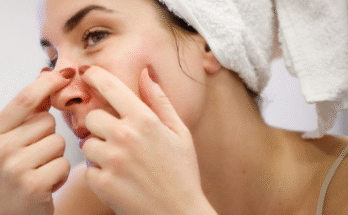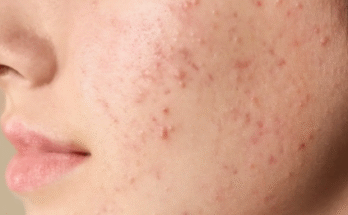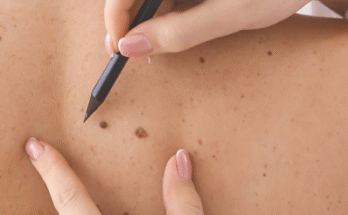The connection between the mind and the skin is stronger than most people realize. Our skin is often the first to reveal what’s happening inside our bodies.
When we are stressed, it can react with breakouts, dryness, redness, or even flare-ups of existing conditions like eczema or acne. While skincare routines and products play an important role, addressing stress is one of the most powerful ways to support a clear, healthy, and radiant complexion.
Learning to manage stress is not just good for emotional balance—it can truly transform the way your skin looks and feels.
How Stress Affects the Skin
When you experience stress, your body releases hormones such as cortisol and adrenaline. These hormones are designed to help you respond to immediate challenges, but when stress becomes frequent or long-lasting, they can negatively affect the skin.
Cortisol, in particular, increases oil production in the skin glands. This can clog pores and lead to breakouts or dull-looking skin. Prolonged stress also slows the skin’s natural repair processes, making it harder for wounds, blemishes, and irritations to heal. Additionally, stress can weaken the skin barrier, causing dehydration and sensitivity.
Many people notice that their skin feels different during stressful times. It might be oilier, drier, or more reactive than usual. Conditions like psoriasis, rosacea, or hives can also worsen when stress levels are high. Beyond the biological effects, stress can lead to lifestyle habits that unintentionally harm the skin. For example, lack of sleep, poor diet, and skipping daily skincare routines often accompany stressful periods. Together, these factors create a cycle where stress damages the skin, and skin problems, in turn, increase stress.
The Mind-Skin Connection
The relationship between stress and skin health has been studied for decades, and modern research confirms what many people have intuitively known: emotional well-being directly influences skin quality. The skin and nervous system are closely connected through a network of nerves and chemical messengers. When the brain senses stress, the skin responds through inflammation and hormonal changes. On the other hand, positive emotions and relaxation can lower inflammation, promote better circulation, and enhance the skin’s ability to renew itself.
This connection explains why people often notice an improvement in their skin after a vacation, a good night’s sleep, or a few days of peace and rest. When the body is calm, blood flow increases, oxygen and nutrients reach skin cells more efficiently, and the complexion naturally becomes more vibrant. Taking care of mental health, therefore, is not a luxury—it’s a vital part of a healthy skincare strategy.
Everyday Ways to Reduce Stress and Support Skin Health
Managing stress doesn’t always require major lifestyle changes. Simple, consistent habits can make a noticeable difference in both your mood and your skin’s condition. One of the most effective ways to start is by establishing a daily self-care routine that allows your mind and body to unwind. Gentle exercise, like walking, yoga, or stretching, helps lower stress hormones and increases circulation, which supports healthy skin renewal. Even a short walk outdoors can help clear the mind and refresh your complexion.
Mindfulness and relaxation techniques are also powerful tools. Practicing deep breathing, meditation, or guided relaxation for just a few minutes each day can help your nervous system calm down. As stress decreases, your body’s inflammatory response lessens, giving your skin a chance to heal and rebalance. Many people find that mindfulness not only helps them feel more centered but also encourages them to treat their skin with more patience and care.
Sleep plays an equally important role in reducing stress and maintaining skin health. During sleep, the body repairs tissues and balances hormones. Chronic lack of rest can lead to dullness, dark circles, and a tired appearance. Prioritizing seven to eight hours of quality sleep each night helps restore both mental and physical energy, allowing your skin to appear brighter and more refreshed.
Nutrition also supports the mind-skin connection. Eating a balanced diet rich in fruits, vegetables, whole grains, and healthy fats can help stabilize mood and provide the nutrients your skin needs. Foods high in antioxidants, such as berries and leafy greens, combat oxidative stress caused by free radicals. Drinking enough water helps maintain hydration, while limiting caffeine and sugar can prevent fluctuations that might worsen both mood and skin issues. While no single food can eliminate stress, nourishing your body well strengthens your overall resilience.
Creating a Calming Skincare Routine
Skincare can be a relaxing ritual when approached with mindfulness. Taking a few minutes each morning and evening to cleanse and moisturize the skin is not just about appearance—it’s also about creating a sense of calm and routine. Gentle massage while applying products stimulates circulation and gives you a moment to slow down. Choosing products with soothing ingredients such as aloe vera, chamomile, or green tea can help calm irritation that may appear during stressful times.
It’s also important to listen to your skin’s needs. During periods of stress, you may need more hydration or gentler formulas. Avoid harsh scrubs or strong chemical treatments when your skin feels sensitive, as they may aggravate irritation. Simplicity can be powerful—sometimes, using fewer products with consistent care yields the best results. Pairing this routine with relaxing background music or a pleasant scent can make skincare feel like a mini retreat rather than a chore.
Emotional Health and Confidence
When stress affects your skin, it can also influence how you feel about yourself. Visible breakouts or redness can lead to frustration or self-consciousness, which may increase stress further. Learning to approach your skin with kindness and patience can help break this cycle. Remember that skin health fluctuates naturally and that imperfections do not define your worth or beauty.
Practicing self-compassion is a key part of reducing stress. Instead of focusing on what you dislike about your skin, try appreciating the ways it protects and reflects your overall health. Engaging in hobbies, connecting with supportive people, and setting realistic goals all contribute to emotional balance. When you feel better emotionally, your skin often follows suit.
The Long-Term Benefits
Reducing stress is not an overnight fix for skin issues, but over time, the results can be remarkable. As your body adjusts to a calmer rhythm, inflammation decreases, circulation improves, and your skin barrier becomes stronger. Fine lines may appear softer, breakouts less frequent, and your overall complexion more even. Beyond physical appearance, you will likely notice improvements in mood, focus, and energy. These benefits create a positive feedback loop: when you feel good, you take better care of yourself, and your skin responds with natural radiance.
A Holistic Approach to Beauty
Healthy skin is a reflection of balance within. Reducing stress is one of the most holistic ways to nurture that balance. By combining emotional well-being with good nutrition, adequate sleep, and gentle skincare, you give your skin the best environment to thrive. Every person’s skin is different, but calmness, consistency, and self-care are universally beneficial. The next time you feel overwhelmed, take a deep breath, step outside, stretch, or simply pause for a moment of gratitude. Those small choices can make a big difference in how you feel—and how your skin glows.


